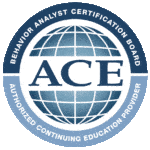Teaching “What” Questions for Speech Therapy
Written By: Michelle E. Sisto, MS CCC-SLP TSSLD S

Speech language pathologists target a variety of different skills within the context of speech and language therapy. Some of these skills cover understanding and answering “wh” questions. “What” questions are some of the earliest developing question types that children are exposed to and start to learn.
This leads speech language pathologists to spend a significant amount of time helping children acquire this important skill. It begs the question -”Why are “what” questions so important? Why even care?”
Understanding “What” Questions
To most of us, the thought of understanding and responding to “what” questions comes second nature. On a deeper level, “what” questions are an integral part of communication. By answering “what” questions, children are accessing a plethora of other language skills. Children must understand what the word “what” means, the other vocabulary words used within the question, and the grammatical structure of the question.
After this, the child needs to process the information and understand the social context of the situation. The child then needs to formulate an appropriate response and execute the response. This ties together social, receptive, and expressive language skills, which takes a lot of work and practice for a skill most of us see as a simple task.
Importance of “What” Questions
Questions, specifically “what” questions are important to teach, during speech therapy for a variety of different reasons. This skill helps children participate in social situations and routines, such as conversations. It also helps them, in the future, academically with tests and group projects.
Understanding “what” questions also is incorporated in following commands and keeping themselves and others safe. Without this important skill, these other important aspects of language and cognition will have gaps preventing children from mastering other important skills that they need within their life.
Reasons for Struggling with “What” Questions
There are many reasons that children struggle to understand and respond to “what” questions. Usually, it is a struggle with receptive language and processing all of the language that they are inputting. During questions, the children can become overwhelmed by all of the information which is why they have difficulty understanding the question.
If there is also a difficulty with expressive language, this may cause difficulty formulating an appropriate response, even if they understand the question. It is a very complicated set of skills trying to work together.
Steps to Teaching “What” Questions for Speech Therapy
When teaching “wh” questions, it is common to begin with teaching the concept of “what”. There are many things that need to be considered when teaching:
- Define the question word: When teaching this skill, it is important for the therapeutic approach to be direct and explicit. This means that the ambiguity of the concepts are removed. The concept of “what” should be explicitly explained. Children should be taught that “what” means an object or an action. This helps the children comprehend the meaning behind the word before then can formulate an appropriate response.
- Include visuals: Visuals help reinforce the concepts and can be in the form of objects, pictures, words, and photographs. The provided visual to help support the language concepts and helps the child understand and respond appropriately.
- Identify the root of the problem: When a child struggles with understanding and responding to questions, it is imperative to make sure the child has a strong foundation in other language areas, such as vocabulary, inference, and syntax (to name a few!). This will help identify if the struggle truly lies in answering the “what” question or if another struggle is complicating answering the question.
Ways to Improve Teaching “What” Questions for Speech Therapy
With all of this considered, there are several different materials that can be used to teach these skills:
- Farm/Farm Animals/Dolls/Dollhouse: When playing with the farm and the farm animals or the dolls and dollhouse, questions such as “what is this”, “what is the Mommy doing”, and “what is the sheep eating” can be targeted through naturalist play and asking “what” questions while following the child’s lead
- Books: While reading a story, ask questions about the pictures, the story, or both! These questions can be supported through verbal support, through reading the story, and visual support, through referring to the picture. This could look like pointing to a picture of a girl eating breakfast and asking “what is the girl doing?”
- Mystery bag: Using a brown paper bag, throw sensory rich items, such as a bouncy ball, play doh, and rock (for examples) and have the child reach in and feel the items. Have them guess what they think it is through facilitating with “what do you think it is”. When they pull the item out, ask questions, such as “what is it”, “what did you find”, and “what does the ball do?”
- Pretend food and kitchen set (or cooking real food during meal prep): During play, comment on the actions of the child and follow their lead. Throughout the interactions, questions can be targeted, such as “what are you making?”, “what are you cutting?”, and “what does a knife do?”
These are just a few of the ways “what” questions can be targeted using different strategies and materials. Strategies and materials don’t need to be complicated, pre-planned, or expensive to work wonders on teaching the concept of “what” to children.
Targeting “what” questions should be done in a naturalistic environment, such as play or routine activities (i.e. cooking) to promote the most carryover and generalization. By targeting these basic skills, the children will be giving the skills needed to succeed in other areas of their lives!
Date Posted:
July 26, 2022
Share this blog
Categories
Recent Blog Posts








